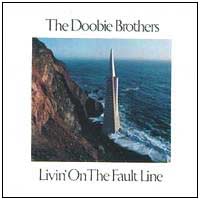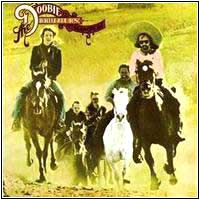| As one of the most popular Californian pop/rock
bands of the '70s, the Doobie Brothers evolved from a mellow, post-hippie boogie band to
a slick, soul-inflected pop band by the end of the decade. Along the way, the group racked
up a string of gold and platinum albums in the US, along with a number of radio hits like
"Listen to the Music," "Black Water" and "China Grove."
The roots of the Doobie Brothers lay in Pud, a short-lived Californian country-rock
band in the vein of Moby Grape featuring guitarist/vocalist Tom Johnston and drummer
John Hartman. After Pud collapsed in 1969, the pair began jamming with bassist
John Shogren and guitarist Patrick Simmons. Eventually, the quartet decided to form a
group, naming themselves the Doobie Brothers after a slang term for marijuna. Soon,
the Doobies earned a strong following throughout Southern California, especially among
Hell's Angels, and they were signed to Warner Bros. in 1970. The band's debut
was ignored upon its 1971 release. Following its release, Shogren was replaced by
Tiran Porter and the group added a second drummer, Michael Hossack for 1972's Toulouse Street.
Driven by the singles "Listen to the Music" and "Jesus Is Just Alright," Toulouse Street
became the group's breakthrough. The Captain and Me (1973) was even more successful,
spawning the Top 10 hit "Long Train Runnin'" and "China Grove." Keith Knudsen replaced Hossack
as the group's second drummer for 1974's What Once Were Vices Are

![[To Top]](http://andleaf.com/img/icons/uu_mal.gif) |



